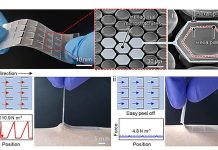
In a new study from UC Davis and elsewhere, researchers found a natural product from the dried root of a pea-family plant, potentially combined with an enzyme inhibitor, may provide hope in alleviating neuroinflammation in Parkinson’s disease.
They found that a soluble epoxide hydrolase (sEH) inhibitor and kurarinone, a compound from the dried root of Sophora flavescens, reduced neuroinflammation in Parkinson’s disease (PD).
The dried root, also known as kushen, has been used for hundreds of years in traditional Chinese medicines.
The research may lead to an effective therapy for PD, a progressive neurogenerative or brain disorder that affects more than 10 million people worldwide, including a million in the United States, according to the Mayo Clinic.
Most PD patients are 65 or over and most are men. There is no cure.
The team says basically, kurarinone targets the soluble epoxide hydrolase (sEH), which is a key regulatory enzyme involved in the metabolism of fatty acids, and inhibitors of the sEH enzyme resolve neuroinflammation.
The enzyme regulates a newly studied class of natural chemical mediators, which in turn regulates inflammation, blood pressure and pain.
In addition to its use as a natural product for treating Parkinson’s disease, kurarinone provides a new model for the design of still more active compounds to block the neuroinflammation associated with multiple neurodegenerative diseases, including Alzheimer’s, autism, and other disorders.
Although scientists now have multiple medications to manage the debilitating symptoms of Parkinson’s disease, they still don’t have a way to stop the progression of the disease, not to mention having a cure
The conventional wisdom believes the reason for that is that doctors have been only treating the symptoms, not the cause of the disease. One of the contributing causes, as evidenced recently, has been neuroinflammation.
Researchers hope that natural herbal medicine will offer some relief from Parkinson’s disease.
If you care about Parkinson’s disease, please read studies about gut inflammation may initiate Parkinson’s disease and findings of a new early sign of Parkinson’s disease.
For more information about Parkinson’s disease and your health, please see recent studies about this stuff in berries may prevent and reverse Parkinson’s disease and results showing that eye tests could predict Parkinson’s disease 18 months ahead.
The study is published in the Proceedings of the National Academy of Sciences and was conducted by Cheng-Peng Sun et al.
Copyright © 2022 Knowridge Science Report. All rights reserved.



